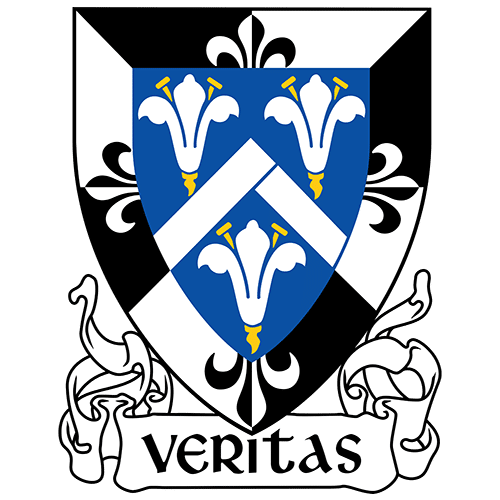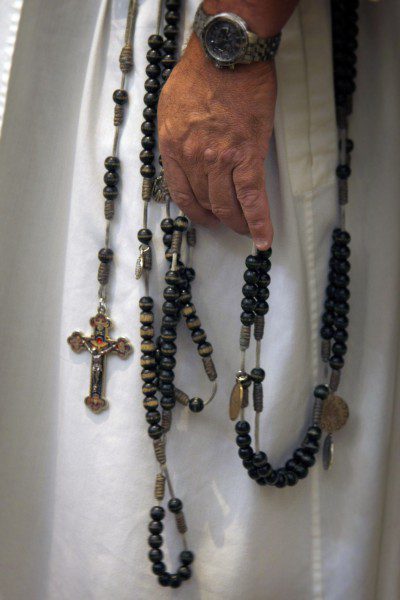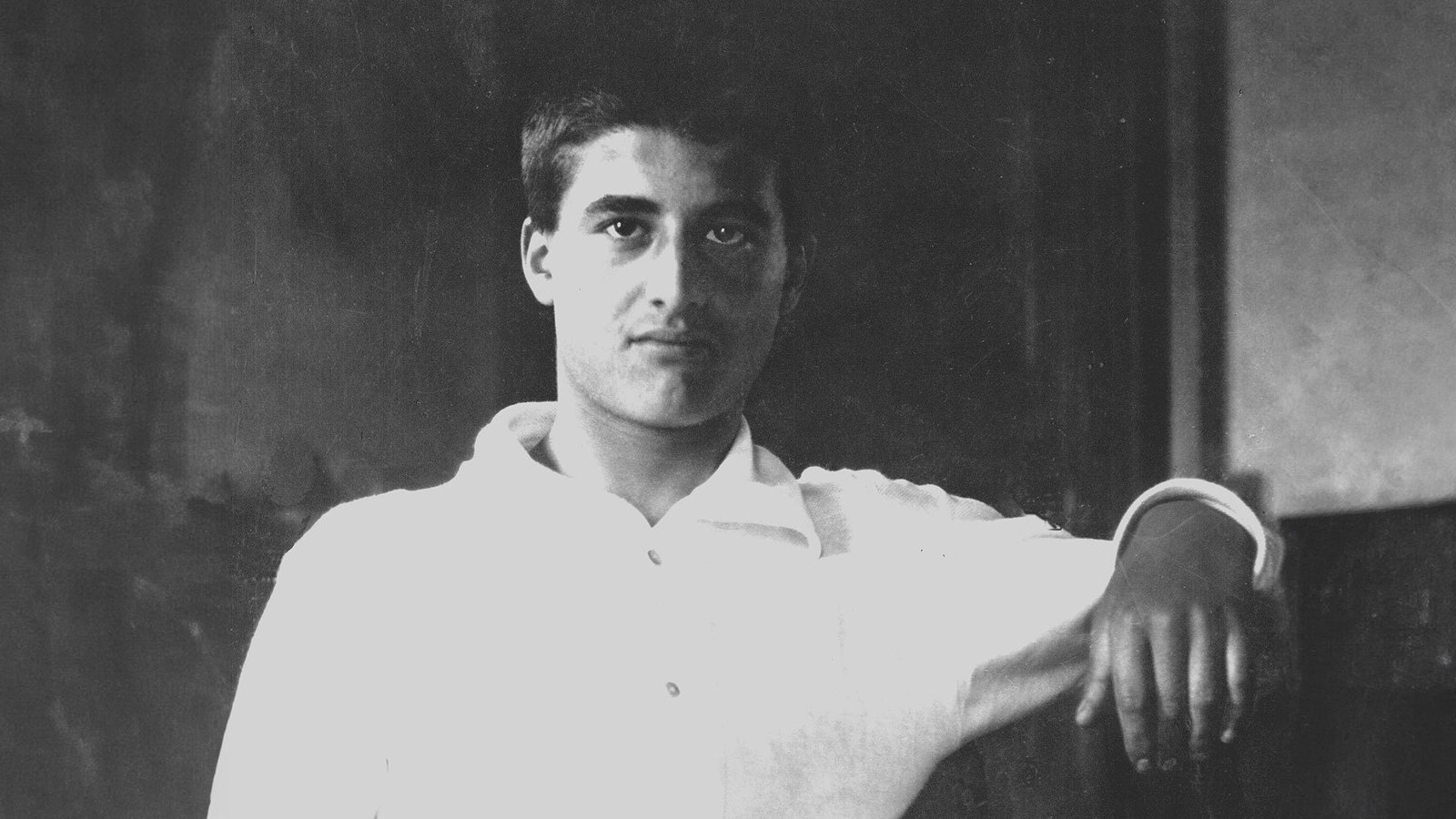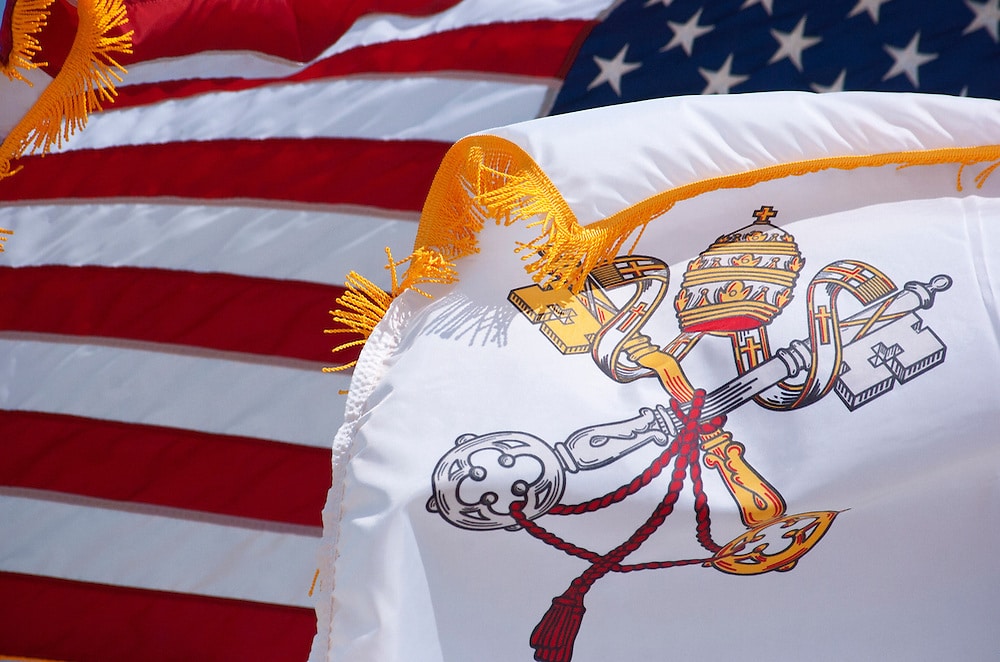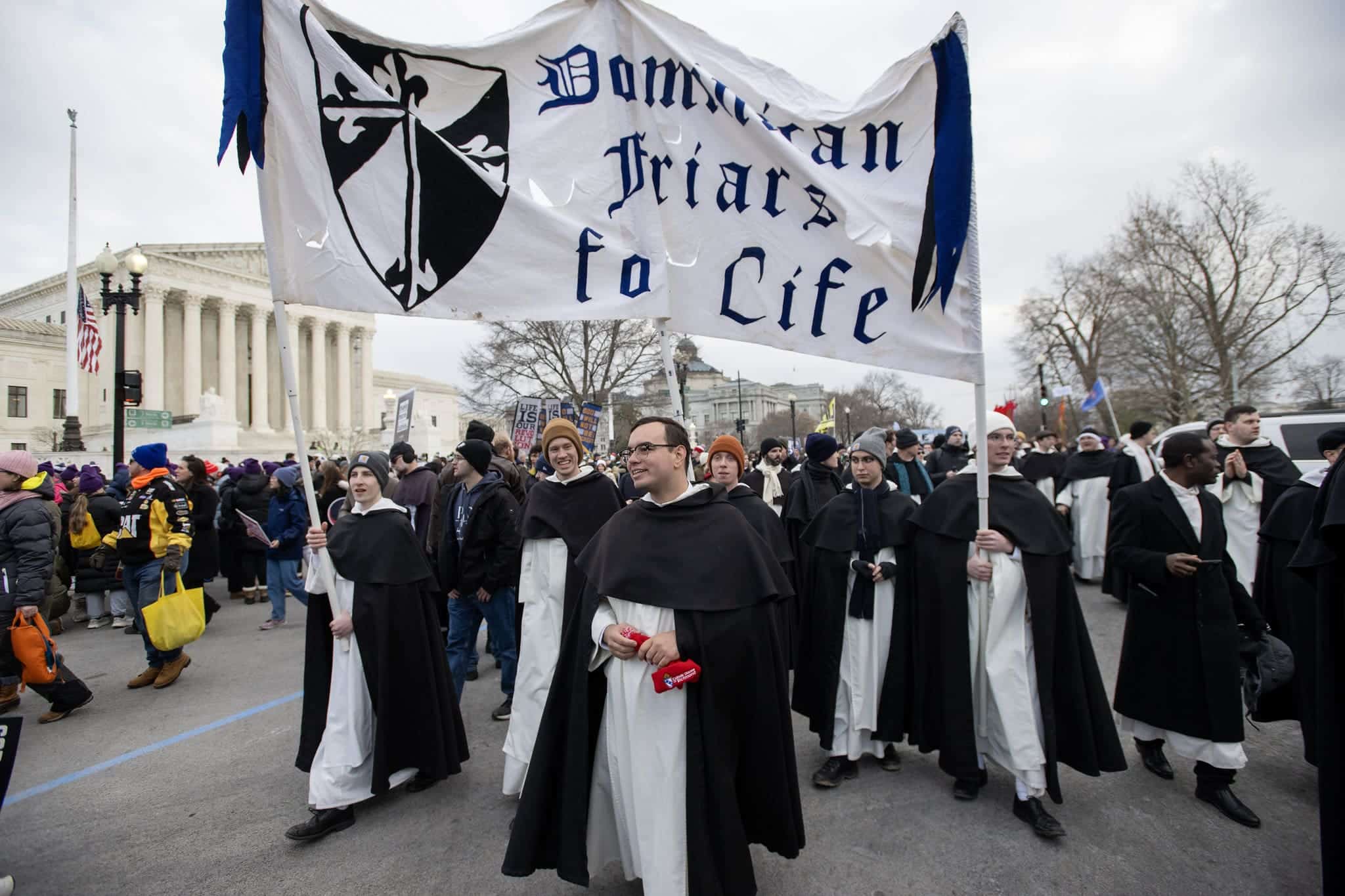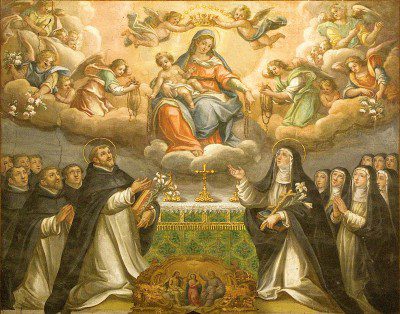
Fresco from the Pontifical University of St. Thomas Aquinas (Angelicum)
Photo by Fr. Lawrence Lew, O.P.
While he was the reigning pontiff, Pope St. John Paul II was known for his devotion to the Most Holy Rosary. In his apostolic letter, “Rosarium Virginis Mariae,” he writes about it’s relevance to the Christian life, and the relationship between the rosary and the Order of Preachers. What follows is an excerpt from that letter.
The Rosary of the Virgin Mary, which gradually took form in the second millennium under the guidance of the Spirit of God, is a prayer loved by countless Saints and encouraged by the Magisterium. Simple yet profound, it still remains, at the dawn of this third millennium, a prayer of great significance, destined to bring forth a harvest of holiness. It blends easily into the spiritual journey of the Christian life, which, after two thousand years, has lost none of the freshness of its beginnings and feels drawn by the Spirit of God to “set out into the deep” (duc in altum!) in order once more to proclaim, and even cry out, before the world that Jesus Christ is Lord and Saviour, “the way, and the truth and the life” (Jn 14:6), “the goal of human history and the point on which the desires of history and civilization turn.”
The Rosary, though clearly Marian in character, is at heart a Christocentric prayer. In the sobriety of its elements, it has all the depth of the Gospel message in its entirety, of which it can be said to be a compendium. It is an echo of the prayer of Mary, her perennial Magnificat for the work of the redemptive Incarnation which began in her virginal womb. With the Rosary, the Christian people sits at the school of Mary and is led to contemplate the beauty on the face of Christ and to experience the depths of his love. Through the Rosary the faithful receive abundant grace, as though from the very hands of the Mother of the Redeemer.
The Rosary is also a path of proclamation and increasing knowledge, in which the mystery of Christ is presented again and again at different levels of the Christian experience. Its form is that of a prayerful and contemplative presentation, capable of forming Christians according to the heart of Christ. When the recitation of the Rosary combines all the elements needed for an effective meditation, especially in its communal celebration in parishes and shrines, it can present a significant catechetical opportunity which pastors should use to advantage. In this way too Our Lady of the Rosary continues her work of proclaiming Christ. The history of the Rosary shows how this prayer was used in particular by the Dominicans at a difficult time for the Church due to the spread of heresy. Today we are facing new challenges. Why should we not once more have recourse to the Rosary, with the same faith as those who have gone before us? The Rosary retains all its power and continues to be a valuable pastoral resource for every good evangelizer.
